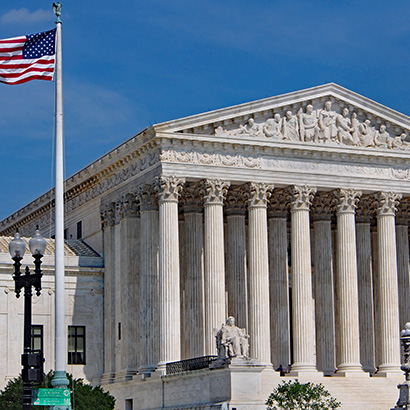
Series
The Administrative State
In a landmark ruling on 28 June 2024, the US Supreme Court expressly overruled the 40-year-old Chevron doctrine, eliminating the requirement that courts defer to agencies’ interpretations of ambiguous statutes.
The Court in Loper Bright Enterprises v. Raimondo held that the Administrative Procedure Act requires federal courts to decide what statutes mean independently of any agency interpretation, although they may still “seek aid” from well-reasoned or long-standing agency interpretations.
This decision affects every industry that is regulated by US federal agencies, and it is expected to usher in more frequent judicial challenges to agency rules, greater scrutiny of agency actions, and a different approach to law-making by Congress.
To help our clients understand, anticipate, and navigate the full impact of the Court’s decision on all of the affected industries in which the firm’s clients do business, we have established a cross-practice, interdisciplinary task force.
The task force has provided and will continue to provide careful analyses of Loper Bright and how it will affect the industries in which K&L Gates clients do business. In addition to the material already on this page, please stay tuned for additional webinars and client alerts.
Thought Leadership
On 2 April 2025, President Trump announced a series of “reciprocal” tariffs on US imports from all countries. The tariffs apply at different rates by country, starting at a baseline of 10% and reaching as high as 50%.
The Hon. Jim Chalmers MP, Federal Treasurer and the Hon. Clare O'Neil MP, Minister for Housing, Minister for Homelessness issued a joint media release on 16 February 2025 titled "Albanese Government clamping down on foreign purchase of established homes and land banking".
The nuclear energy industry continues to gain momentum and has a strong outlook for 2025 and beyond.
Starting on 30 June 2024, with the application of the first of two introduction phases of the Regulation on Markets in Crypto-assets across all member states of the European Union, the EU has introduced for the first time a harmonized regulatory framework as well as accompanying passporting rights for service providers of the crypto-asset market, affecting both traditional institutions of the financial sector and new players emerging in the crypto-ecosystem.

